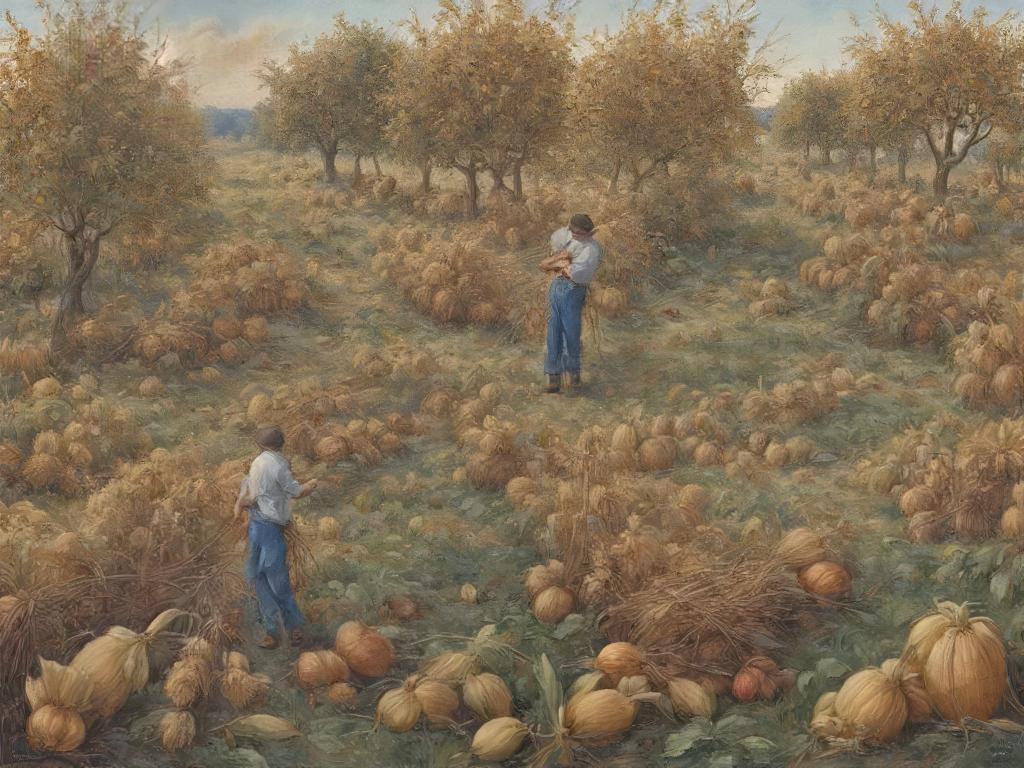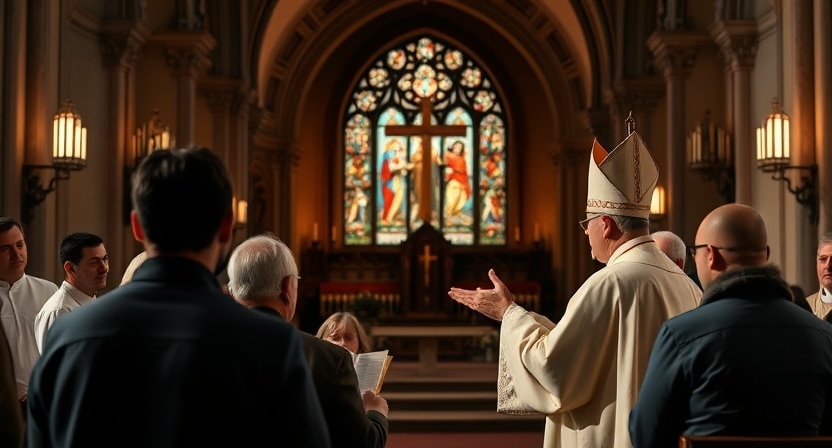ELEVENTH SUNDAY OF THE YEAR
He had compassion on them
INTRODUCTION AND CONFITEOR
In the Gospel we will read how Jesus looked at the people who had come to him, saw how harassed and miserable they were, and had compassion on them. ‘Sheep without a shepherd’ was how he described their plight.
We have our own worries, problems, and pain. Christ has compassion on us too. Let us now turn to him with confidence. [Pause]
Lord, you looked at the people and saw that they were like sheep without a shepherd. Lord, have mercy.
You saw their pain and anguish, and your heart was moved with compassion for them. Christ, have mercy.
You sent your apostles among them to bring them healing and comfort. Lord, have mercy.
HEADINGS FOR READINGS
First Reading (Exodus 19:2-6). God tells the Israelites that he wants them to be holy because they are his very own people.
Second Reading (Romans 5:6-11). God showed his immense love for us by the fact that Christ died for us while we were still sinners.
Gospel (Matthew 9:36-10:8). We get a glimpse of the kind of person Christ was – person of immense compassion for the sufferings of people.
1st Reading – Exodus 19:2-6a
2 After they made the journey from Rephidim and entered the wilderness of Sinai, they then pitched camp in the wilderness. While Israel was encamped there in front of the mountain,
3 Moses went up to the mountain of God. Then the Lord called to him from the mountain, saying: This is what you will say to the house of Jacob; tell the Israelites:

4 You have seen how I treated the Egyptians and how I bore you up on eagles’ wings and brought you to myself.
5 Now, if you obey me completely and keep my covenant, you will be my treasured possession among all peoples, though all the earth is mine.
6A You will be to me a kingdom of priests, a holy nation.
Responsorial Psalm – Psalms 100:1-2, 3, 5
R. We are His people, the sheep of His flock.
1 Shout joyfully to the Lord, all you lands;
2 serve the Lord with gladness;
come before him with joyful song.
R. We are His people, the sheep of His flock.
3 Know that the Lord is God,
he made us, we belong to him,
we are his people, the flock he shepherds.
R. We are His people, the sheep of His flock.
5 Good indeed is the Lord,
His mercy endures forever,
his faithfulness lasts through every generation.
R. We are His people, the sheep of His flock.
2nd Reading – Romans 5:6-11
Brothers and sisters:
6 For Christ, while we were still helpless, yet died at the appointed time for the ungodly.
7 Indeed, only with difficulty does one die for a just person, though perhaps for a good person one might even find courage to die.
8 But God proves his love for us in that while we were still sinners Christ died for us.
9 How much more then, since we are now justified by his blood, will we be saved through him from the wrath.
10 Indeed, if, while we were enemies, we were reconciled to God through the death of his Son, how much more, once reconciled, will we be saved by his life.
11 Not only that, but we also boast of God through our Lord Jesus Christ, through whom we have now received reconciliation.
Alleluia – Mark 1:15
R. Alleluia, alleluia.
15 The Kingdom of God is at Hand;
repent and believe in the Gospel.
R. Alleluia, alleluia.
Gospel – Matthew 9:36-10:8
36 At the sight of the crowds, his heart was moved with pity for them because they were troubled and abandoned, like sheep without a shepherd.
37 Then he said to his disciples, “The harvest is abundant but the laborers are few;
38 so ask the master of the harvest to send out laborers for his harvest.”
1 Then he summoned his twelve disciples and gave them authority over unclean spirits to drive them out and to cure every disease and every illness.
2 The names of the twelve apostles are these: first, Simon called Peter, and his brother Andrew; James, the son of Zebedee, and his brother John;
3 Philip and Bartholomew, Thomas and Matthew the tax collector; James, the son of Alphaeus, and Thaddeus;
4 Simon the Cananean, and Judas Iscariot who betrayed him.
5 Jesus sent out these twelve after instructing them thus, “Do not go into pagan territory or enter a Samaritan town.
6 Go rather to the lost sheep of the house of Israel.
7 As you go, make this proclamation: ‘The kingdom of heaven is at hand.’
8 Cure the sick, raise the dead, cleanse lepers, drive out demons. Without cost you have received; without cost you are to give.
HOMILY
Everywhere Jesus went he was surrounded by crowds. At times he scarcely had time to eat. Today’s Gospel presents a typical scene. Once again Jesus finds himself surrounded by crowd. It was a typical crowd, pushy and demanding, thoughtless and selfish. The incident gives us a great insight into the kind of person he was. You might have expected him to show some annoyance. But what happens? He takes one look at the people, takes pity on them, for he sees that they are dejected and harassed, like sheep without a shepherd, and he immediately gives himself to them.
We need to remind ourselves constantly of what Christ was like. We can easily forget. Even the Church can forget. But how could the Church forget? Because it is made up of fallible human beings. It can easily put its doctrines and dogmas, its rules and regulations, before people, and even before Christ himself, just as the individual can put his or her private devotions before Christian living. When this happens, everything gets distorted and out of focus.
One of the most moving descriptions of Christ I have come across is to be found in Dostoyevsky’s great novel, The Brothers Karamazov. Here is the kernel of it. It should prove inspirational and help us to understand today’s Gospel.
The action takes place in Seville during the terrible days of the Inquisition. Into this place Christ came. He came to visit his people who were tormented and suffering. He went into the streets and lanes of the city where just the day before a hundred heretics had been burned at the stake by order of the cardinal, the Grand Inquisitor.
Though he came without fuss, everybody recognized him at once. The people crowded around him. He walked among them with an expression of gentleness on his face. He reached out his hands and blessed them. Many were healed of their diseases just by touching his robe.
He stopped at the steps of the cathedral as an open coffin with the body of a little girl in it was being carried out. A hush fell over the crowd. Then a whisper arose: ‘He will raise the child’. And he did so, amid the cries and sobs of the grateful mourners. But at that moment the Grand Inquisitors himself arrived in the square. He saw the empty coffin. Then his face darkened and he ordered his guards to seize the stranger. They did so and threw him into jail.
Night came on. Suddenly the cell door opened, and there in front of the prisoner stood the Grand Inquisitor himself. He entered with a lamp in his hand. He put down the lamp on the table and asked him: ‘Is it you? Is it really you?’
Receiving no reply he went on: ‘Indeed you have no need to say anything. You have said it all before. I know well what you would say. But why have you come to meddle with us? I don’t know if you really are he or someone else. All I know is that tomorrow you will burn at the stake as the worst of all heretics, and the people who today kissed your feet, tomorrow will be throwing sticks on your fire. Do you realize that?’
The Grand Inquisitor waited for some reply but none came. The silence upset him. He would have liked him to say something, however bitter and terrible. But at that the stranger approached him, and with great gentleness, embraced him. That was his answer.
For a moment the old man was confused. But he soon recovered. He went to the cell door, opened it and said to him: ‘Go, and come back no more – never, never!’ And he let him out, and he disappeared through the dark streets and lanes of the sleeping city.
Here we have a beautiful picture of Christ, the Christ of the Gospels. What makes the story so forceful is that it is set against the background of the Spanish Inquisition when people thought they were doing a service to Christ by burning heretics at the stake. It is truly frightening to think how far individuals, groups of people, and even the Church itself, can forget the things he stood for, and the things he opposed.
The task of the Church is not just to preach Christ to people, but to be Christ to people, especially to the poor and the suffering. We need a Church that can make the caring and compassionate Christ alive and real for a skeptical world. While a lot of responsibility falls on the leaders in the Church, each of us has a vital part to play. How can the forest be green unless the individual trees are green?
Every Christian is called to be another Christ in the world. We can’t say that we do not understand what this involves. As in Dostoyevsky’s story, we all instantly know and recognize a Christ like person when we meet one.
Today there is an increasing preoccupation with revelations and apparitions. I think it is a sign of a great spiritual poverty. It shows how far we are from the Gospel. What more tevelations do we need? Christ has said it all. But do we know what he has said, and so we try to live according to it? As for apparitions, do we, or do we not, believe that the risen Christ lives on among us?
‘There is a hunger today for the Christ of the Gospel’s (Catherine de Hueck Doherty).
‘Compassion is the chief, and perhaps the only, law of all human existence’. (Dostoyevsky).
PRAYER OF THE FATHEFUL
Let us pray that, having experienced the compassion of Christ in our own lives, we may be willing to show compassion to others in their pain and need. R. Lord, graciously hear us.
That Christians may not be content merely to pray for the relief of suffering in the world, but that they may be ready to do something about it. [Pause] Lord, hear us.
For all our political and civil leaders: that they may show special concern for the poor, the unemployed, and those suffering hardship and deprivation. [Pause] Lord, hear us.
For the sick and all those undergoing serious operations: that Christ may comfort and strengthen them [Pause] Lord, hear us.
That when we feel lonely and unloved we may remember that in Christ we have a compassionate Brother and Friend. [Pause] Lord, hear us.
For local needs.
Let us pray:
Heavenly Father, you sent your Son into our world to help us build a more just and human world. In working for such a world may we enhance our own dignity and that of others. We make all our prayers through Christ out Lord.
COMMUNION REFLECTION
The person in misery does not need
a look that judges and criticizes,
but a comforting presence
that brings peace, hope, and life.
In other words, what he or she needs is compassion.
Compassion is a word full of meaning.
It means:
sharing the same passion,
sharing the same suffering,
sharing the same agony,
accepting into my heart
the misery in yours.
Your pain calls out to me.
It touches my heart.
It awakens something within me,
and I become one with you in your pain.
I may not be able to relieve your pain,
but by understanding it and sharing it,
I make it possible for you to bear it
In a way that enhances your dignity
and helps you to grow.
From Tears of Silence by Jean Vanier, published by Darton, Longman and Todd Ltd.


